Abstract
At times, there are reasons for authors to make a formal statement of retraction of work they publish in biomedical journals. This study examines 235 retracted articles and looks at the reasons for these retractions and citations to the articles subsequent to retraction. The primary reasons for retraction are error of various kinds (such as problems with method or sample, including contamination of samples) and misconduct. The 235 articles are cited a total of 2,034 times after retraction. This set of citations can be divided into two groups: citations that appear in journals included in the Abridged Index Medicus and those that appear in other journals included in MEDLINE. While most of the citations in these two groups of journals can be categorized as "implicitly positive," 275 make explicitly positive mention of retracted articles. The implications for continued citation for biomedical research and clinical practice are discussed.
Full text
PDF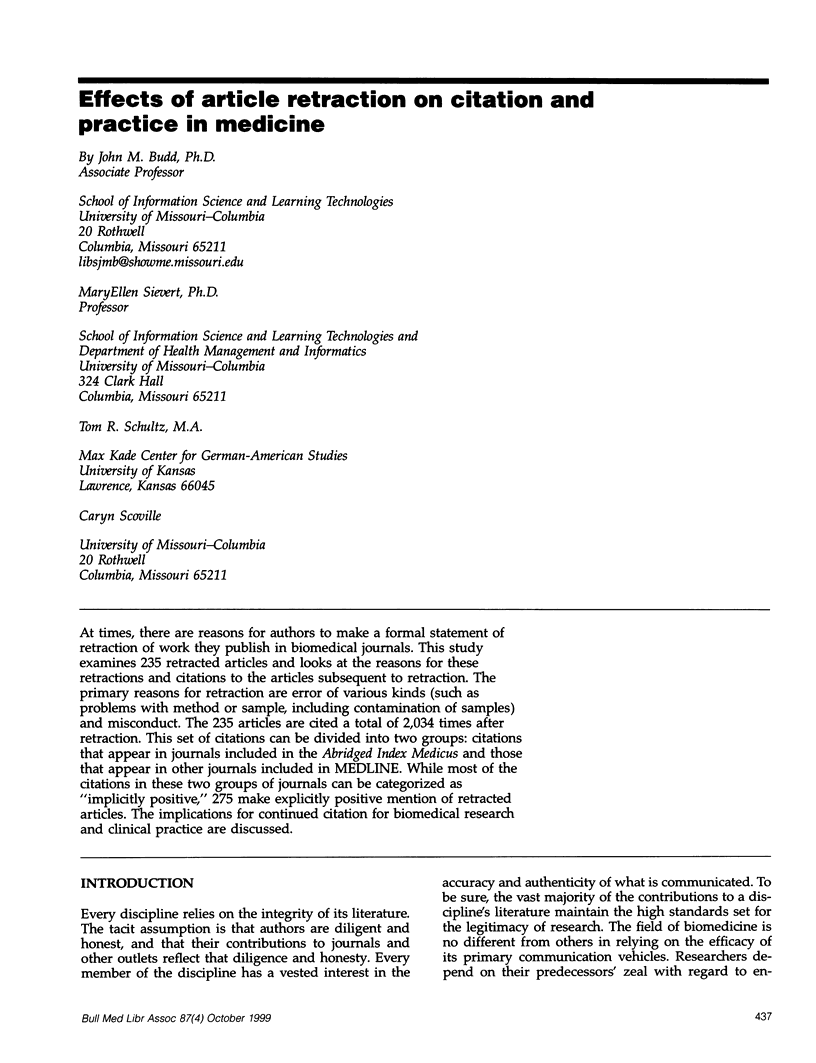
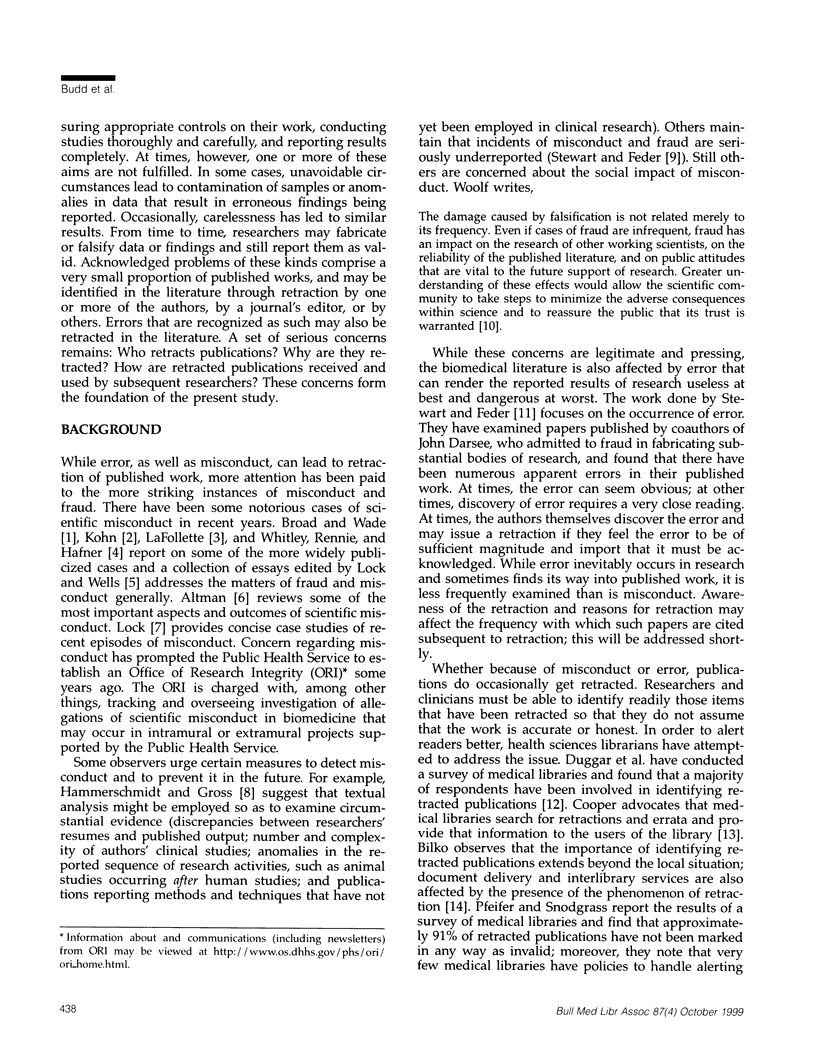
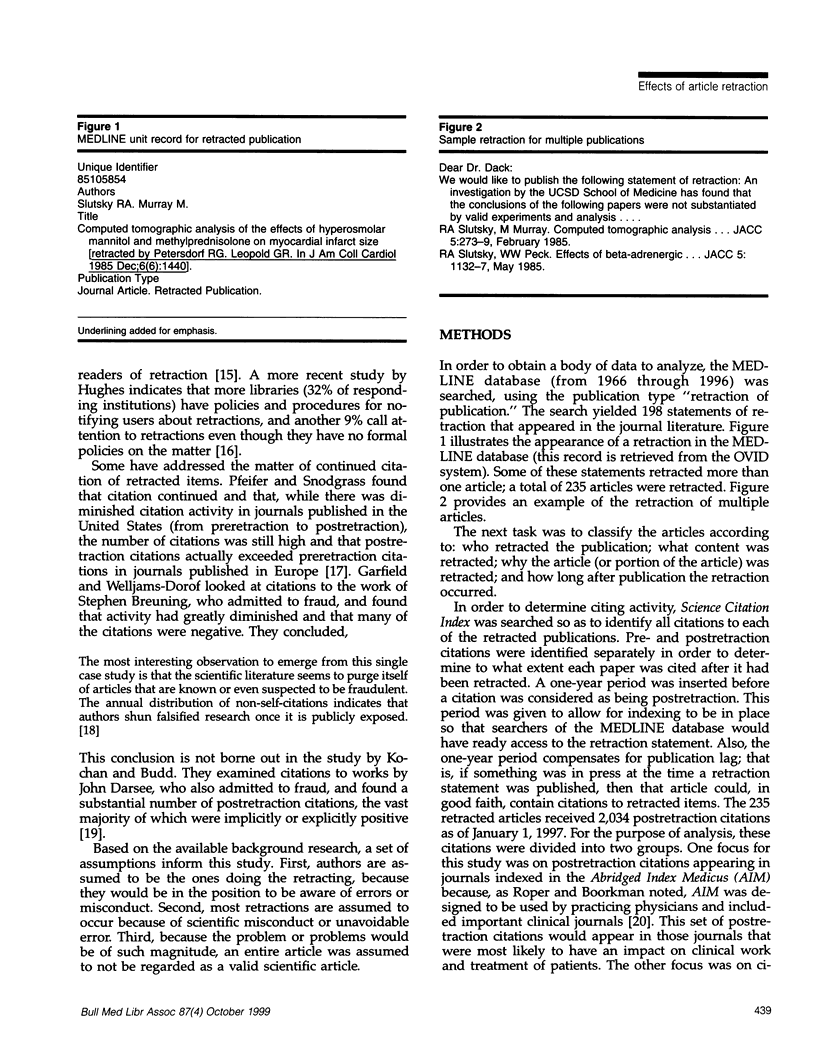
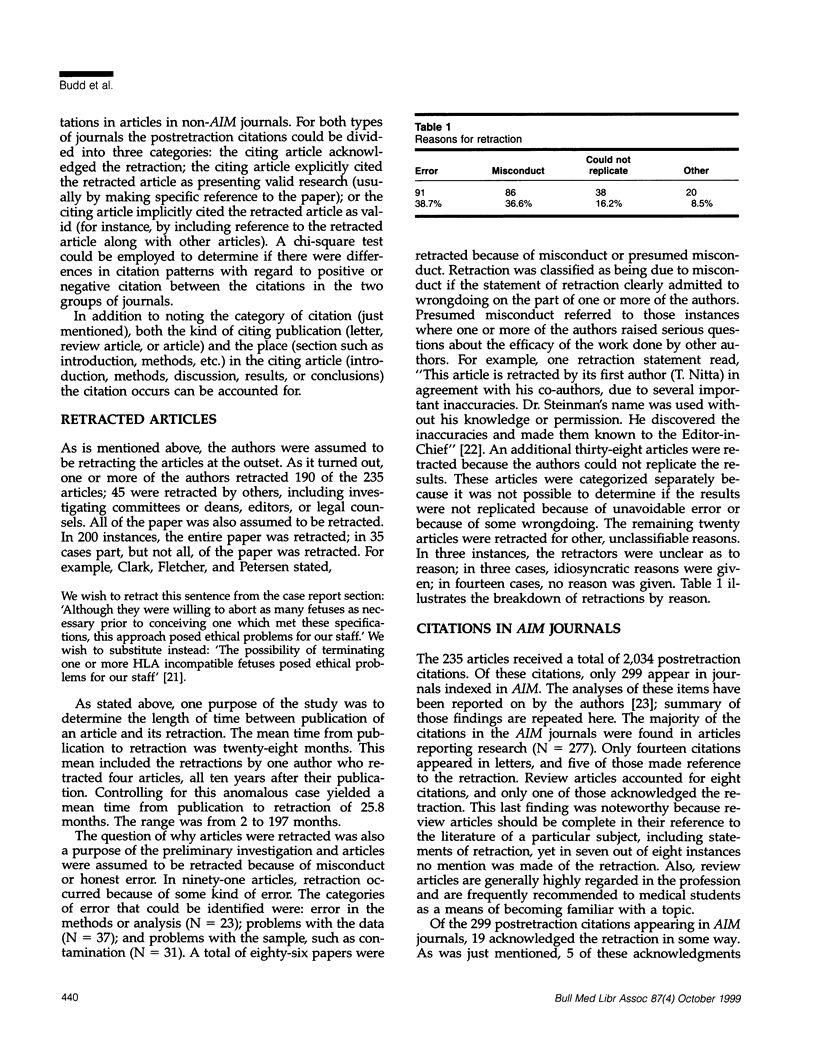
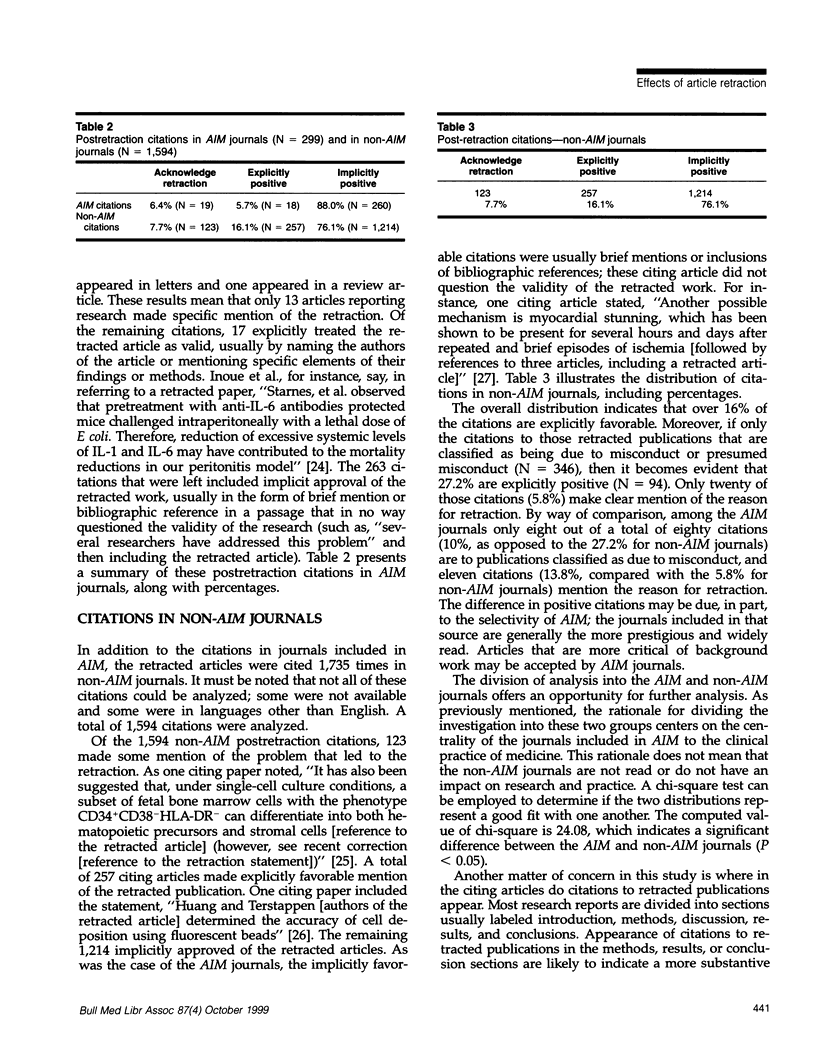
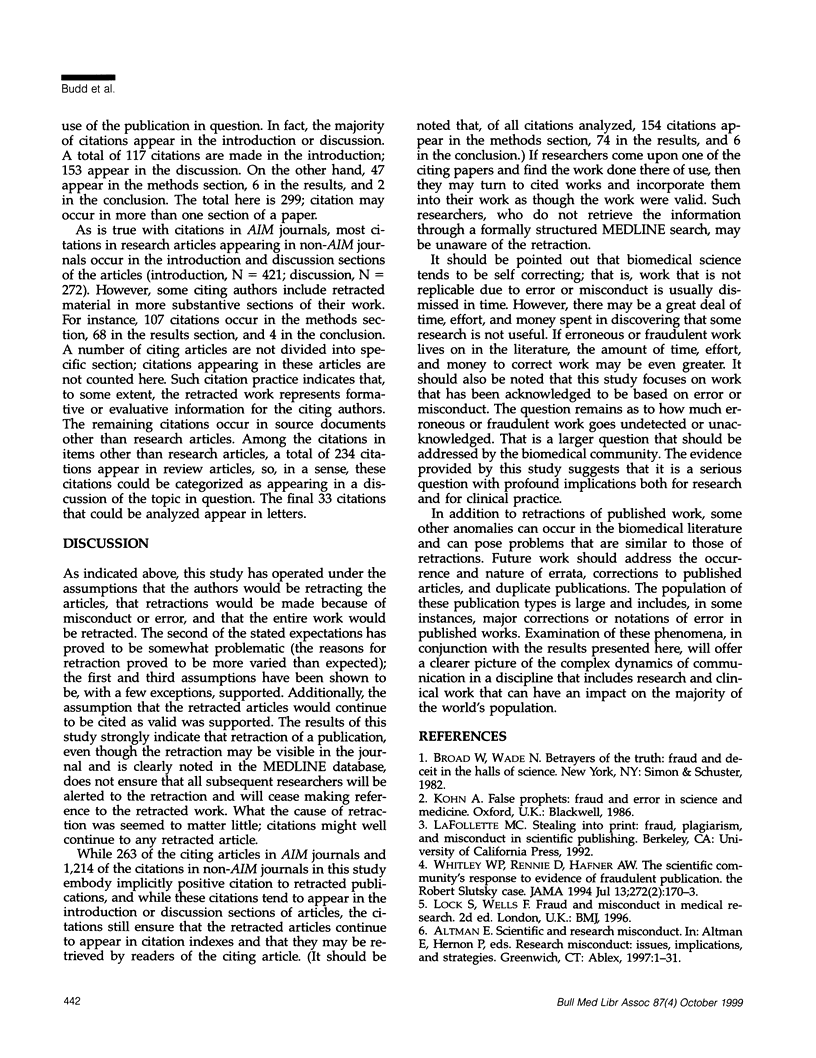
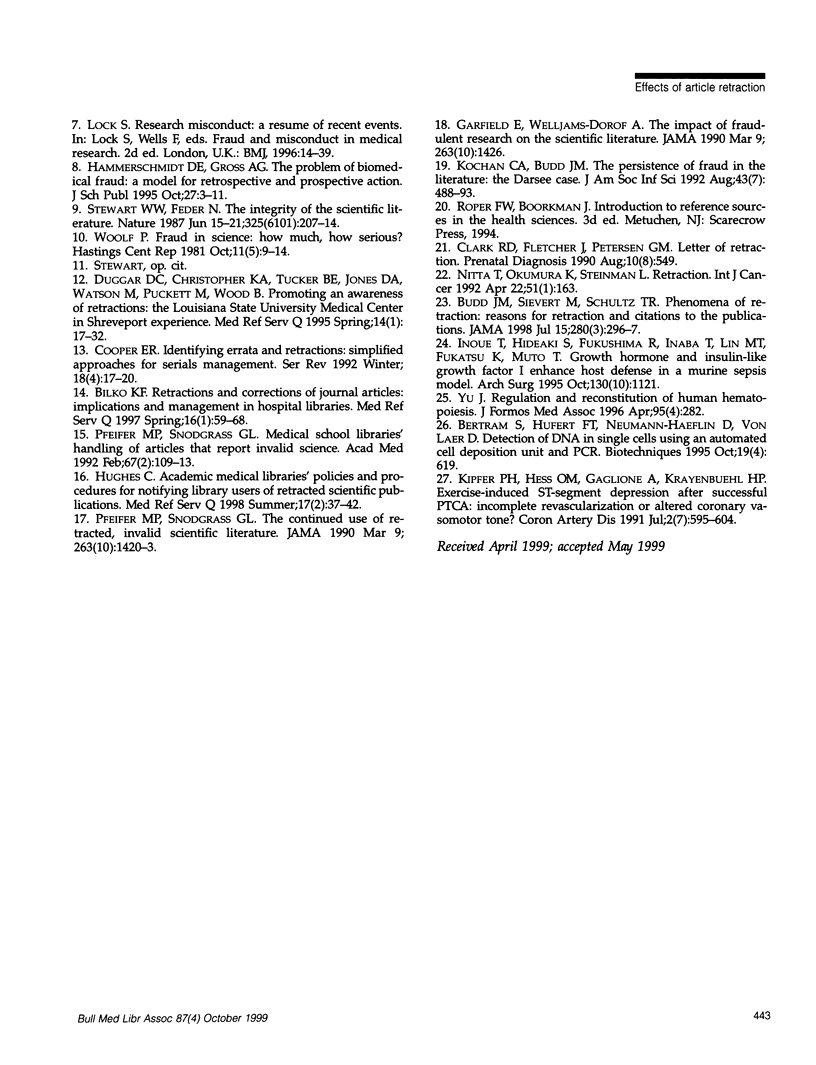
Selected References
These references are in PubMed. This may not be the complete list of references from this article.
- Budd J. M., Sievert M., Schultz T. R. Phenomena of retraction: reasons for retraction and citations to the publications. JAMA. 1998 Jul 15;280(3):296–297. doi: 10.1001/jama.280.3.296. [DOI] [PubMed] [Google Scholar]
- Clark R. D., Fletcher J., Petersen G. M. Letter of retraction. Prenat Diagn. 1990 Aug;10(8):549–549. doi: 10.1002/pd.1970100815. [DOI] [PubMed] [Google Scholar]
- Duggar D. C., Christopher K. A., Tucker B. E., Jones D. A., Watson M., Puckett M., Wood B. Promoting an awareness of retractions: the Louisiana State University Medical Center in Shreveport experience. Med Ref Serv Q. 1995 Spring;14(1):17–32. doi: 10.1300/J115V14N01_03. [DOI] [PubMed] [Google Scholar]
- Garfield E., Welljams-Dorof A. The impact of fraudulent research on the scientific literature. The Stephen E. Breuning case. JAMA. 1990 Mar 9;263(10):1424–1426. [PubMed] [Google Scholar]
- Hughes C. Academic medical libraries' policies and procedures for notifying library users of retracted scientific publications. Med Ref Serv Q. 1998 Summer;17(2):37–42. doi: 10.1300/J115v17n02_04. [DOI] [PubMed] [Google Scholar]
- Kochan Carol Ann, Budd John M. The persistence of fraud in the literature: the Darsee case. J Am Soc Inf Sci. 1992 Aug;43(7):488–493. doi: 10.1002/(SICI)1097-4571(199208)43:7<488::AID-ASI3>3.0.CO;2-7. [DOI] [PubMed] [Google Scholar]
- Nitta T. Retraction. An analysis of T-cell-receptor variable-region genes in tumor-infiltrating lymphocytes within malignant tumors. Int J Cancer. 1992 Apr 22;51(1):163–163. doi: 10.1002/ijc.2910510129. [DOI] [PubMed] [Google Scholar]
- Pfeifer M. P., Snodgrass G. L. Medical school libraries' handling of articles that report invalid science. Acad Med. 1992 Feb;67(2):109–113. doi: 10.1097/00001888-199202000-00014. [DOI] [PubMed] [Google Scholar]
- Pfeifer M. P., Snodgrass G. L. The continued use of retracted, invalid scientific literature. JAMA. 1990 Mar 9;263(10):1420–1423. [PubMed] [Google Scholar]
- Stewart W. W., Feder N. The integrity of the scientific literature. Nature. 1987 Jan 15;325(6101):207–214. doi: 10.1038/325207a0. [DOI] [PubMed] [Google Scholar]
- Whitely W. P., Rennie D., Hafner A. W. The scientific community's response to evidence of fraudulent publication. The Robert Slutsky case. JAMA. 1994 Jul 13;272(2):170–173. [PubMed] [Google Scholar]
- Woolf P. Fraud in science: how much, how serious? Hastings Cent Rep. 1981 Oct;11(5):9–14. [PubMed] [Google Scholar]


